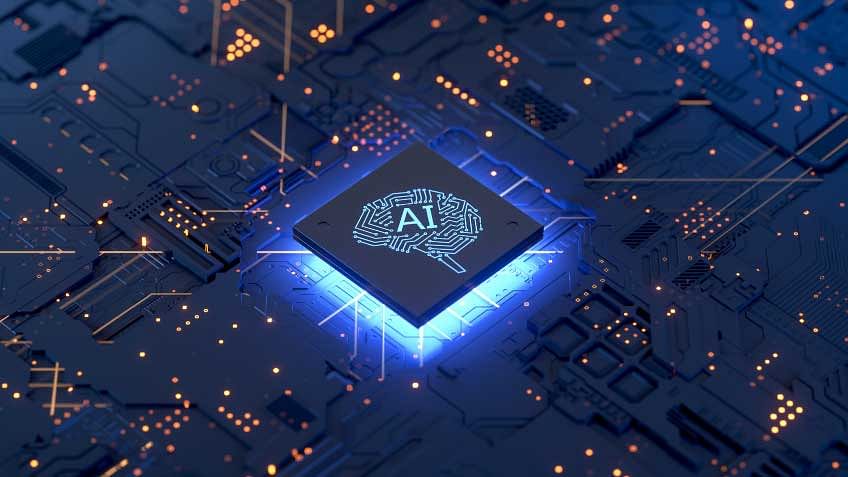Week 1
What will be the problem you plan to solve with AI?
Introduction: Understanding AI's Impact Artificial Intelligence (AI) is revolutionizing the way decisions are made across various industries by providing advanced tools that can analyze extensive data sets and deliver informed decisions with remarkable speed. This technology encompasses a diverse range of capabilities, including machine learning, natural language processing, and robotics, each contributing uniquely to transforming large volumes of data into actionable insights. AI's ability to process and analyze data far exceeds human capabilities, enabling more precise and efficient decision-making processes that can adapt over time as more data becomes available.
TP075563 Seif el sayed abdelrazek nasr abdelmaksoud
Challenges of AI in Decision-Making While the integration of AI into decision-making processes offers substantial benefits, it also presents significant challenges that must be addressed. The successful deployment of AI requires access to vast amounts of high-quality, unbiased data to train the systems effectively. Ethical concerns also play a critical role, including issues related to privacy, data security, and the potential for AI to perpetuate existing societal biases (Purdy, 2023). Organizations must navigate these challenges carefully and responsibly to harness AI's capabilities without compromising ethical standards or public trust. This complex landscape of challenges has been thoroughly analyzed by the World Economic Forum, which emphasizes the importance of developing trust, facilitating wide access to technology, and integrating AI systems seamlessly into existing infrastructures to maximize their potential (Philip, 2023).
TP076426 Angel Tandiono
AI Applications in Decision-Making In practical terms, AI's impact on decision-making stretches across multiple sectors. In finance, AI tools assist in detecting fraud and managing credit risk by analyzing transaction patterns and predicting potentially fraudulent activities (Levitt, 2024). In healthcare, AI supports diagnostic processes and personalizes patient care by processing medical imaging and patient data to identify health issues early and accurately. These technologies automate routine tasks and analyze large datasets quickly, enabling businesses and healthcare professionals to make more informed, accurate, and timely decisions. The Enterprisers Project highlights numerous instances where AI has driven new revenue opportunities and improved operational efficiencies by making data-informed decisions at strategic levels (Takyar, 2023).
TP077093 Minami Otsuka
AI in Streamlining Operational Processes Further, AI's role in enhancing operational efficiencies across various business functions is profound. AI-driven systems are capable of forecasting market demand, managing inventories efficiently, and optimizing logistics and delivery routes, thereby significantly reducing operational costs and enhancing service delivery. Such applications of AI not only accelerate business operations but also minimize the risk of human error, leading to leaner, more responsive operational models. McKinsey & Company's analysis indicates that AI is transforming business landscapes by automating complex processes and providing strategic insights that aid in the comprehensive management of operations across sectors (Ahluwalia, 2023).
TP077524 Epure Matvei
Purdy, M. (2023). How AI Can Help Leaders Make Better Decisions Under Pressure. Harvard Business Review. https://hbr.org/2023/10/how-ai-can-help-leaders-make-better-decisions-under-pressure
Philip, M. (2023). How artificial intelligence will transform decision-making. World Economic Forum. https://www.weforum.org/agenda/2023/09/how-artificial-intelligence-will-transform-decision-making
Levitt, K. (2024). How Is AI Used in Fraud Detection? | NVIDIA Blog. NVIDIA Blog. https://blogs.nvidia.com/blog/ai-fraud-detection-rapids-triton-tensorrt-nemo/
Takyar, A. (2023). AI in decision making. LeewayHertz - AI Development Company. https://www.leewayhertz.com/ai-in-decision-making/#how-does-ai-aid-businesses-in-making-informed-decisions
Ahluwalia, S. (2023). The Pivotal Role Of Artificial Intelligence In Streamlining Operations. Noibu. https://noibu.com/blog/the-pivotal-role-of-artificial-intelligence-in-streamlining-operations/


Nice 👍🏻
ReplyDelete